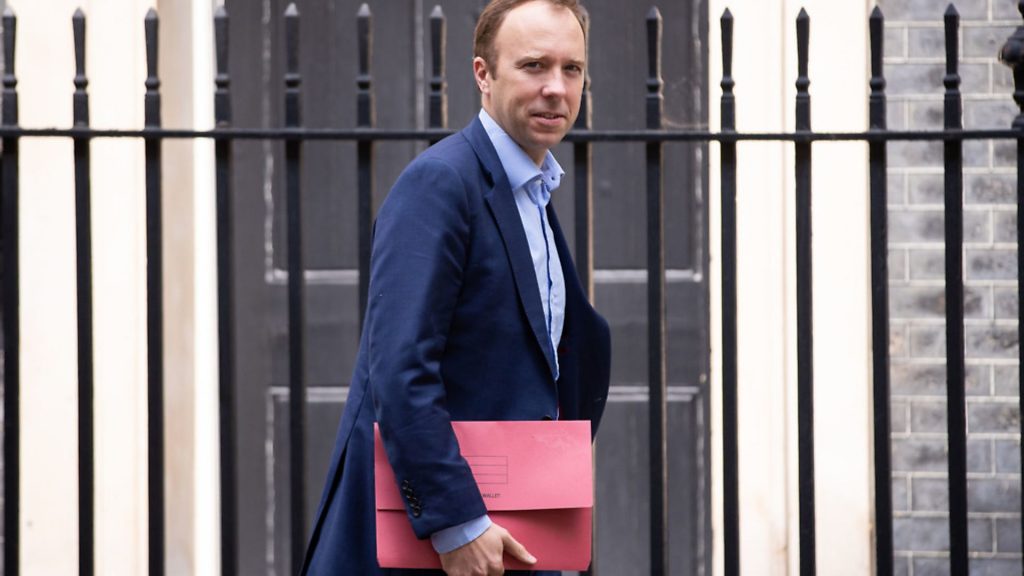
Sometimes, when analysing the actions of politicians it’s worth taking them at their word, assuming they actually want to do what they says JAMES BALL.

Sometimes, when analysing the actions of politicians it’s worth taking them at their word, assuming they actually want to do what they say, and looking at how their actions and their appointments would back up that plan.
With a new administration as extraordinary as that of Boris Johnson, this approach might prove as revelatory as any other way to get a grip on this government, which already looks utterly unlike the one before it.
Given the prime minister was the lead figure in the Vote Leave campaign – and has appointed its chief strategist to Number 10 – we should assume the government would like to “take back control”, suggested during the campaign to mean restoring British parliamentary sovereignty.
Johnson has said that his preferred option to carry this out would be to negotiate a new exit deal with the EU, pass that through parliament, and leave with a deal by October 31. Failing that, our new PM says, he will leave on that date without a deal. He will under no circumstances extend the deadline, and he will not countenance a second referendum – and has supposedly signalled he doesn’t want an early election.

Unpicking that one step at a time, we’re left in an interesting position – to say the least. If we’re to assume that it’s the UK’s parliament to whom sovereignty should be returned, we’d expect to see an administration made up of people who hold the institution in high esteem.
Instead, the prime minister’s most high-profile and influential advisor is Dominic Cummings, a man who has been held in contempt of parliament for refusing a summons from a Select Committee – over his conduct during the 2016 EU referendum campaign.
Compounding this, at least one of the most senior ministers in his Cabinet has suggested the unprecedented step of proroguing parliament (temporarily dissolving it) to prevent it making any efforts to stop no-deal or extending Article 50 – an executive power grab so bold that when Charles I took this course it led to the English Civil War and his eventual execution.
The renegotiating the deal step of the plan seems similarly dicey. Having ruled out an extension, Johnson needs an extraordinarily quick renegotiation – an objective hugely complicated by the EU not having its team still in place, and being set to take a month-long holiday it does not intend to cancel.
Johnson is tackling this by setting the EU the impossible precondition of agreeing to abolish the backstop (which the UK asked for in the first place) before negotiations could continue – which somewhat misses the point of negotiation.
Even if Johnson ever gets ministers to the table, his Brexit secretary is the same one who worked for Theresa May, and failed to negotiate any concessions, while his foreign secretary is a man regarded by Brussels as so useless in the negotiations that they developed systems to work around him.
The prospects for a deal in such circumstances seem astronomically slim. Given Johnson began his government exactly as May began hers – by firing numerous ministers for often petty reasons – the chances of him passing a deal where May failed, with an even smaller majority than she enjoyed, would also seem to be zero.
This takes us to the chances of no-deal. Here, at least, it’s increasingly possible to believe at least some of the new Cabinet mean what they say when they say they’d be willing to entertain this prospect.
The problem with it – for the rest of us, if not for the government – is that most experts think we’ll be even less ready to leave on October 31 than we were on March 29, and there’s no obvious way to fix that even if the government worked flat-out.
As it is, the new preparations mainly consist of ministers doing media rounds telling the public (falsely) that we’re already prepared for it (we aren’t) and that we have “17 side deals” agreed with the EU in case of no-deal (we don’t).
The government’s problem with no-deal is that parliament has roundly rejected it time and again, and has said it will do everything in its power to reject it once more. That means either Johnson has to face down with speaker John Bercow, win a potential no-confidence vote, and perhaps even involve the Supreme Court and a constitutional crisis (not to mention renouncing his “parliamentary sovereignty” goal) to have any chance of achieving no-deal.
That’s a lot to bite off. Accepting Johnson’s goals at face value requires him to achieve several mutually incompatible goals, acting in a way directly contradictory to how he has so far, with different appointments to those he has made, alongside a whole host of other problems.
Any cynic – which these days is most of us – could only conclude that Johnson is not trying to do what he says at all. Boris Johnson is not even trying to run the country, or to negotiate or pass a Brexit deal. He is purely and simply running a campaign team for an early election from 10 Downing Street – and trying to make it look like the outcome he’s so desperately chasing will instead be forced upon him by the intransigence of Brussels and Parliament.
It is a selfish, cynical, and deeply irresponsible gambit. It’s also one that might just work.
Warning: Illegal string offset 'link_id' in /mnt/storage/stage/www/wp-includes/bookmark.php on line 357
Notice: Trying to get property 'link_id' of non-object in /mnt/storage/stage/www/wp-includes/bookmark.php on line 37







